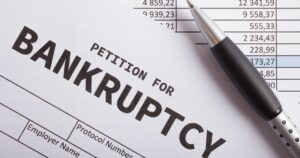When you file Chapter 7 bankruptcy in the state of Washington, there is some property that will be protected under the state’s exemptions (RCW 6.15.020). These exemptions can also apply in a Chapter 13 case.
Washington is one of the few states that allows you to choose between the state or federal exemptions. This means that you can look at both exemptions and decide which suits your situation best – and which will protect your valuable assets.
Some Common Exemptions Under Washington Law
Here are a few of the most common exemptions when filing for bankruptcy:
- Bank Deposits – These are exempt, but only up to $100 (RCW Section 6.15.010).
- Building Materials – Any building materials are exempt, except any that are associated with debts accumulated to purchase those materials.
- Cemeteries and Burial Property – If you have purchased a burial plot or cemetery space, these are 100 percent exempt.
- Child Support – Child support payments that you receive are protected under the exemptions.
- Fraternal Benefit Society Payments – All fraternal benefit society payments are 100 percent exempt.
- Homestead or Your Residential Property – This will protect equity in your home or primary residence, but only up to a specific amount. Under the code, you can exempt up to $125,000 of your home under the homestead exemption. If you are not living in that home, you will need to file a declaration. You can also protect up to $15,000 of unimproved property, but you must also file a declaration.
- Vehicles – You do not have to lose your personal vehicle anymore when you file for bankruptcy. Instead, Washington allows you to exempt up to $3,250 for a single vehicle – as long as it is your primary vehicle used for transportation, or needed in order to maintain employment.
- Insurance Benefits – You can exempt insurance proceeds for property insurance, life insurance, disability insurance, and group life insurance.
- Pension and Retirement Benefits – You may be exempt from losing your retirement and pension benefits, especially if they are city benefits, public retirement benefits, etc. It does include tax-exempt accounts, as per the federal rules.
- Personal Property – Some personal items (some only up to a dollar amount) are also exempt, such as clothing, books, household goods, keepsakes and family photos, health aids, child support, appliances and furniture, and personal injury/recovery compensation.
- Public Assistance – Some grants and public assistance monies are exempt, but there are limitations.
- Wages – Your employment wages are exempt for up to 75 percent of disposable earnings or 30 times the federal minimum hourly wage per week (whichever is greater).
- Unemployment and Workers’ Compensation – If you are on unemployment or receiving workers’ compensation at the time when you file, part or all of your compensation will be exempt.
Speak with a Bankruptcy Attorney to Discover Your Exemptions
You will need to sit down with your bankruptcy attorney to determine which exemptions apply to your case. Your attorney can assess your assets and income, and help decide if Washington’s exemptions or the federal exemptions are better.

